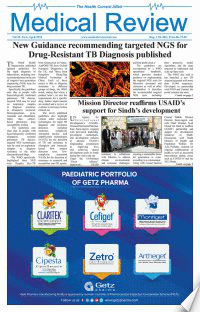Epilepsy is still considered a taboo and a supernatural phenomenon, while Parkinson’s disease is considered as a result of growing age. Similarly, there is a misconception of being addicted to the medication for the entire life if a treatment for depression is started, These view were expressed by experts at a Media Briefing held recently to mark World Mental Health Day in Karachi.
Prof Iqbal Afridi, head of the Psychiatry Department at Jinnah Postgraduate Medical Center (JPMC) informed that most people suffering from mental and neurological disorders in Pakistan, unfortunately, believe that they could never lead a normal life due to costly treatment and stigmas attached to their diseases, despite the fact that the majority of such disorders are treatable in Pakistan.
There is a strong need, on both the government and the public end, to seriously remove stigmas attached to epilepsy, Parkinson’s disease and depression, which are considered as supernatural phenomenon and influence of growing age, although they are, simply, mental and neurological disorders, senior health professionals. Epilepsy is amongst the second most common neurological conditions seen by neurologists,” he added.
Dr Shahid Mustafa, consultant and director of the Neuro Care, said epilepsy affected 50 million people worldwide, and five million of whom had seizures more than once a month. “Lifetime prevalence of epilepsy is two to four percent, whereas the chance of having at least one seizure during a lifetime is eight percent. The incidence of epilepsy is higher in children and the elderly.
The management of epilepsy include a long-term antiepileptic drug (AED) therapy is the reality for the majority of patients diagnosed with epilepsy; AED must be selected on the basis of seizure type, spectrum of activity, tolerability, and drug interactions; and one AED will usually be sufficient to control seizures effectively, but a significant proportion of patients will need to receive multiple AED regimens.”
According to him, Parkinson’s disease (PD) is a long term disorder of the central nervous system that mainly affects the Motor System, whose symptoms are tremor, rigidity, bradykinesia, and postural instability.
Dr Yahya Aamir, consultant psychiatrist at the Aga Khan University Hospital and the Sindh Government Lyari General Hospital said that an estimated seven to 10 million people worldwide are suffering from Parkinson’s disease, and its prevalence increase was from one percent at the age of 65 to five percent by the age of 85, according to him. The prevalence of PD in Pakistan was estimated to be 0.04 million in 2005 and is said to have been doubled by 2030. Talking about the management of Parkinson’s disease, he said that international guidelines recommend dopamine agonists as the first-choice option for initial pharmacotherapy in early disease and as an adjuvant therapy in later Parkinson’s disease.


